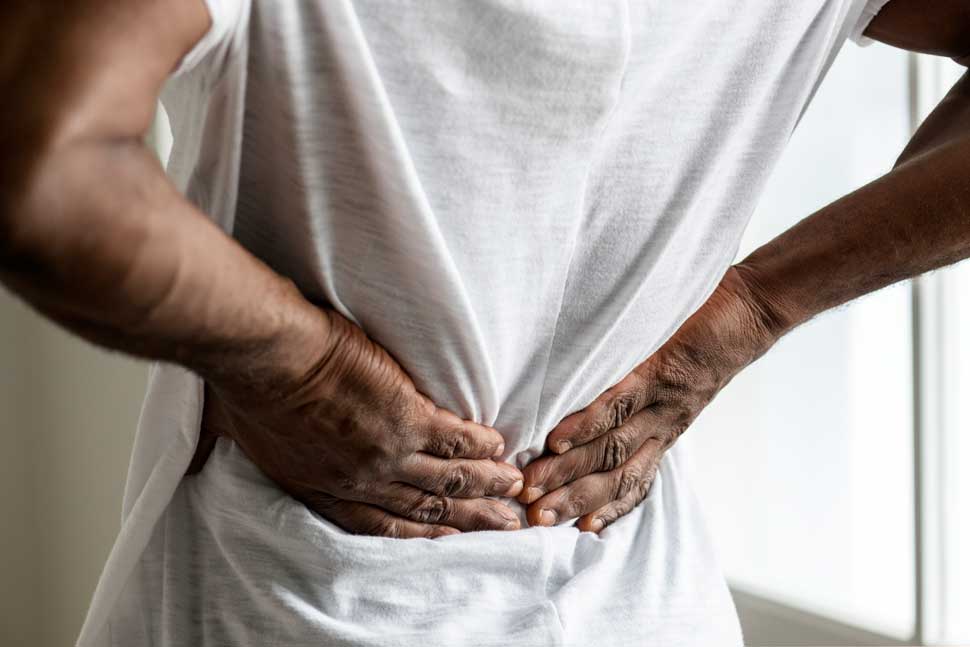Dear friends,
Let’s talk about something most of us deal with but don’t always talk about: pain. I don’t mean the kind that fades after a stubbed toe, paper cut, or even an occasional headache. It’s the kind that lingers and disrupts your workday, your mood, your relationships, and your ability to simply enjoy life.
Pain treatment today isn’t one-size-fits-all. Many people find relief through a combination of medication, movement, mindfulness, and lifestyle adjustments. The key is finding what works for your body and being consistent with it.
September is Pain Awareness Month, and I want to have a heart-to-heart about an experience that many of us are navigating. According to the U.S. Pain Foundation, about 21% of U.S. adults, which is roughly 51.6 million people, live with chronic pain that lasts more than three months. Another 17.1 million deal with high-impact pain that interferes with basic activities, like work or daily living.
And yet, when it comes to getting relief, not everyone is treated equally. Research shows that Black patients, especially Black women, are significantly less likely to have their pain believed or treated appropriately. A 2016 study published in PNAS found that half of white medical students and residents held false beliefs about biological differences between Black and white patients, including the myth that Black people have higher pain tolerance. These misconceptions were directly linked to less accurate pain assessments and inadequate treatment. That’s not only frustrating, it’s harmful.
The bias isn’t always obvious. Sometimes it’s subtle, like a shrug, a minimal prescription, a rushed doctor’s appointment, or no discussion at all about newer treatment options. The result is that we’re left to tough it out absorbing the unspoken message that suffering in silence is noble. That message needs a hard reset.
I know that “long-suffering” shows up in the Bible, usually tied to patience or grace under pressure. But somewhere along the way, some of us turned long-suffering into a lifestyle. We’ve worn it like a badge of pride for being the strong one, the silent one, and the one who carries it all. But there’s a difference between spiritual endurance and unspoken misery. One uplifts, while the other depletes. God didn’t call us to ignore our pain. He gave us wisdom, resources, and community so we could address it.
We’ve also heard the phrase “no pain, no gain.” That’s fine in a workout class when you’re doing a pushup or holding a plank; but chronic pain doesn’t follow that script. It’s not muscle soreness after a solid gym session. It’s the kind of pain that doesn’t go anywhere. Confusing the two can hurt us.
You deserve relief and to be taken seriously. Your pain is valid, and if your doctor isn’t listening, that might be your cue to see a pain specialist who is trained in managing long-term pain. This isn’t giving up, it’s smart self-care. Pain treatment today isn’t one-size-fits-all. Many people find relief through a combination of medication, movement, mindfulness, and lifestyle adjustments. The key is finding what works for your body and being consistent with it.
Here are a few things that help:
-
Document your pain. Track when it starts, what triggers it, and what helps. It gives your provider better information. Patterns matter more than we think.
-
Speak up early. If pain lasts more than a few weeks, please get help. Don’t wait until it’s chronic, because pain that hangs around changes the way your nervous system works, sometimes permanently.
-
Mix your methods. Medications, physical therapy, breathing exercises and daily movement often work better together.
-
Move with care. Gentle activities like walking, swimming, or chair yoga help maintain function and resilience. Supportive footwear and good posture also make a difference.
-
Soothe with heat or ice. Use warm compresses to loosen tight muscles or cold packs to reduce inflammation and numb sharp pain.
-
Support your system. Sleep, hydration, whole foods, stretching, and stress management all play a role in reducing pain.
-
Advocate for yourself. Ask questions, request referrals, and push for better options without apology.
Everything adds up, and what you do today can influence your pain tomorrow. Beyond the personal, we also need to challenge the system. Healthcare still overlooks marginalized groups. Bias still happens. And we have to keep speaking up. Pain Awareness Month isn’t just about acknowledging discomfort, it’s about making space for the stories, the science, and the solutions that have been ignored for too long.
So here’s what I want you to take away: you don’t have to be a martyr. You don’t need to wear your pain like a badge of honor. And you especially don’t need to believe the internal or external voices that try to convince you that your pain isn’t real. Suffering isn’t a test of strength. It’s a call for care.
With your health in mind,






